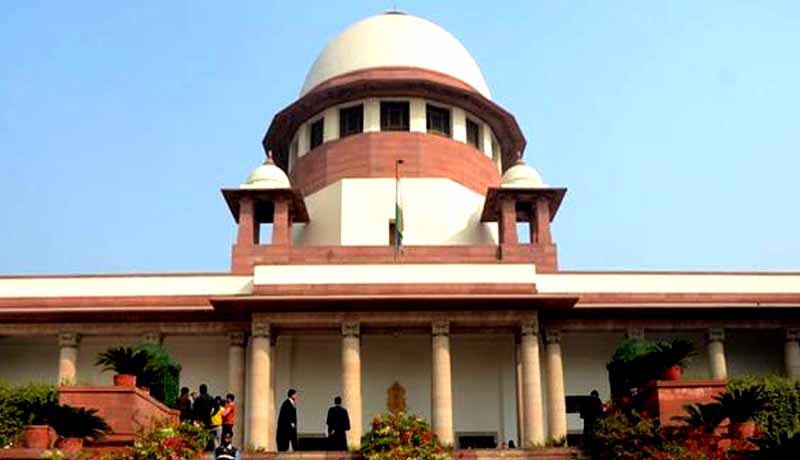Status of Assessee as a Lessor or Licensee is irrelevant to determine Property Tax Liability: SC [Read Judgment]

Ambiguity – Supreme Court – Tax – Taxscan
Ambiguity – Supreme Court – Tax – Taxscan
The Supreme Court of India, in a recent decision held that in order to determine the liability under section 120(1)(C) of the Delhi Municipal Corporation Act, 1957, the status of the assessee as a lessor or licensee. The division bench comprising of Justice L Nageswara Rao and Justice Anil R Dave, was considering a Special Leave Petition filed by the North Delhi Power Limited against the order of the division bench of the High Court of Delhi.
The sole question before the Court was to decide whether the land in dispute is subject to property tax?. The highlights of the decision are discussed below.
In the year 2003, the Assessment and Collection Department of the Delhi Municipal Corporation passed an order determining the rateable value of the land in dispute. Aggrieved by the same, the appellant moved an appeal before the District Judge in which the impugned order was set aside on ground that the land in dispute stood transferred to the Delhi Government and hence it was entitled for exemption from payment of property tax in view of Section 119 (1) of Delhi Municipal Corporation Act, 1957. It was further held that the appellant was a licensee of the Government.On an appeal preferred by the Delhi Municipal Corporation before the High Court, the Single bench held that the assessee is liable to pay tax by observing that the assessee were entitled to let out the properties on which basis it became liable to pay taxes as per section 120(1)(C)of the Delhi Municipal Corporation Act, 1957.
Reference to the Delhi Electricity Reforms (Transfer Scheme) Rules, 200, the Single Judge held that North Delhi Power Limited is an effective and full successor in respect to all matters relating to all liabilities and assets and further held that there is no material to establish that the Delhi Electricity Reforms(Transfer Scheme), 2001 ruled out liability of North Delhi Power Limited from municipal taxation. Subsequently, the division bench of the High Court observed that the Holding Company was not a party to the case and in view of the findings recorded in the judgment that the Holding Company is the owner of the land, the matter has to be decided by the Assessing Authority after giving an opportunity to the Holding Company. Aggrieved with the same, the appellant company approached the Supreme Court seeking relief.
On the point of exigibility of tax over the land in dispute, the Court entertained a doubt about treating the properties of Union Territories as the properties of the Central Government. On this point, the Court observed that “The administration of Union Territories is by the Central Government but that does not mean that Union Territories become merged with the Central Government. They are centrally administered but retain their independent entity.” The Court further refused to comment on this point since it involves certain constitutional questions.
Regarding the incidence of tax, the Apex Court observed that “According to Section 120 (1) (c), the person who has a right to let would be liable to pay tax for un-let land. Admittedly, this land is un-let. Incidence of tax has to be decided by the Authority after taking into consideration the provisions of the Act, rules and the licences, including the distribution licence. The High Court held that the licence pertaining to land as per the Transfer Scheme would show that the Distribution Company is only a licensee and not a lessee. The High Court further held that the distribution licence under Section 20 of the Delhi Electricity Reforms Act, 2000 is distinct and separate from the licence for land. It was further held by the High Court that the distribution licence can neither govern nor be used as a tool to interpret the licence for land. We do not agree with the said findings of the High Court. Section 120 (1) (c) contemplates that a person who has the right to let out un-let land is liable to pay tax. His status as a lessor or licensee is irrelevant. If the distribution licence empowers the Distribution Company to let out the land, notwithstanding the fact that the Distribution Company is a licensee as per Schedule ‘F’ of the Transfer Scheme Rules, it would still have to pay the tax.”In view of the above findings, the Court confirmed the order of the High Court.
Read the full text of the Judgment below.


